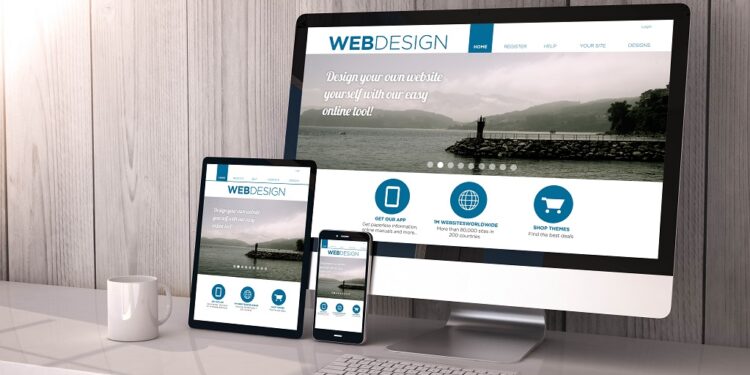Regardless of the nature of your business, setting up a website is a sensible thing to do. Just imagine the countless opportunities having a strong online presence can bring to your company. Reach more people, engage with them, and market your products and services without going on the streets or paying a huge amount of money for billboard, TV, and newspaper ads.
But what makes a great business website? In this article, you will learn the important things to think about when setting up a website to reach your business goals.
1. Decide Whether To Use CMS Or A Website Builder
To create a business website, it’s important to choose between a content management system (CMS) or a website builder.
CMS provides tons of business benefits. For instance, if you published a blog post, you’ll have peace of mind that your content will rank. It’s because search engines, like Google, respond positively to CMS. While using a web builder can free you from the stress of learning about programming languages, using CMS provides extensive business opportunities.
The best features and benefits of CMS are the following:
- Complex website functionalities
- Unlimited customization with a wide range of plugins and templates without design restrictions
- Fast-loading website
- Lots of CMS options available
2. Make Sure To Set Strict Security Website Features
Business websites are at a high risk of experiencing cyber-attacks. According to a trusted source, about 37% of websites are currently running on WordPress, one of the most favorite targets of cybercriminals. That’s why you need to completely safeguard your website and mobile app from hackers by installing secure connections, like secure sockets layer (SSL) and regular updates.
If you want to make your company website highly secure, here are other expert tips you should think about implementing:
- Use A Secure Hosting Service: Procuring a web hosting service ensures top security. It should allow you to upgrade your hosting package to the latest version within the soonest time possible after release. In this way, payment processing, collecting contact details, and user privacy are safeguarded.
- Follow The Best Practices Of Folder And File Permission: The folder and file permission settings of a website control how folders and files are used. Using incorrect file permissions enables hackers to access your files and inject malware to copy sensitive data. Make sure to use the right permissions and update your system regularly.
- Enforce Strict And Strong Admin Password Policies: Users usually need to create easy-to-remember passwords. However, such passwords can be easily broken by cybercriminals. For those business websites using CMS, site administrators can sign in at the site’s backend dashboard and perform other functionalities more securely.
3. Incorporate SEO Earlier
Search engine optimization (SEO) plays a critical role in establishing a strong online presence. For this reason, it’s important to incorporate SEO in web design. SEO is connected to improving customer experience and content marketing.
From designing the user interface, screen compatibility, format, and font to proper content word count, links, and placement, incorporating SEO would bring plenty of benefits to your company website, which include the following:
- Set the ranking high in search engine results pages (SERP)
- Make it easily visible to interested online users
- Produce high-quality content that follows SEO principles and appeals to your target audience
- Promote a smooth user experience every time to entice online users to come back and avail of your offerings
4. Relevant Website Business Information
A business website must have easy-to-see contact details and other company information. Consumers verify the information before availing of a product or a service, and you want to ensure that your contact details are clear and trustworthy.
Take a look at the following tips to make your business information relevant to your web visitors:
- Provide A Physical Address: Consumers prefer to deal with businesses having a physical address. It assures them that the company is legitimate and can easily be contacted if problems arise.
- Place Your Phone Number On Top: In web design, anything placed above-the-fold or at the top portion can be easily noticed by online users. It’s the perfect spot to place your business phone number. A toll-free number is highly recommended because it’s free to use by potential customers.
- Embed A Contact Form: Generate leads for your business by embedding a contact form on your website.
Conclusion
The important things you need to know when setting up a business website include choosing between using a CMS or a website builder. Also, you have to prioritize security by updating your website and installing security website features regularly. Incorporate SEO in the early phase of website development to prepare it for search engine ranking. In this way, you’ll earn organic or unpaid traffic, which means more prospects and sales. Make sure to also provide relevant business information to increase your credibility and customer engagement.




